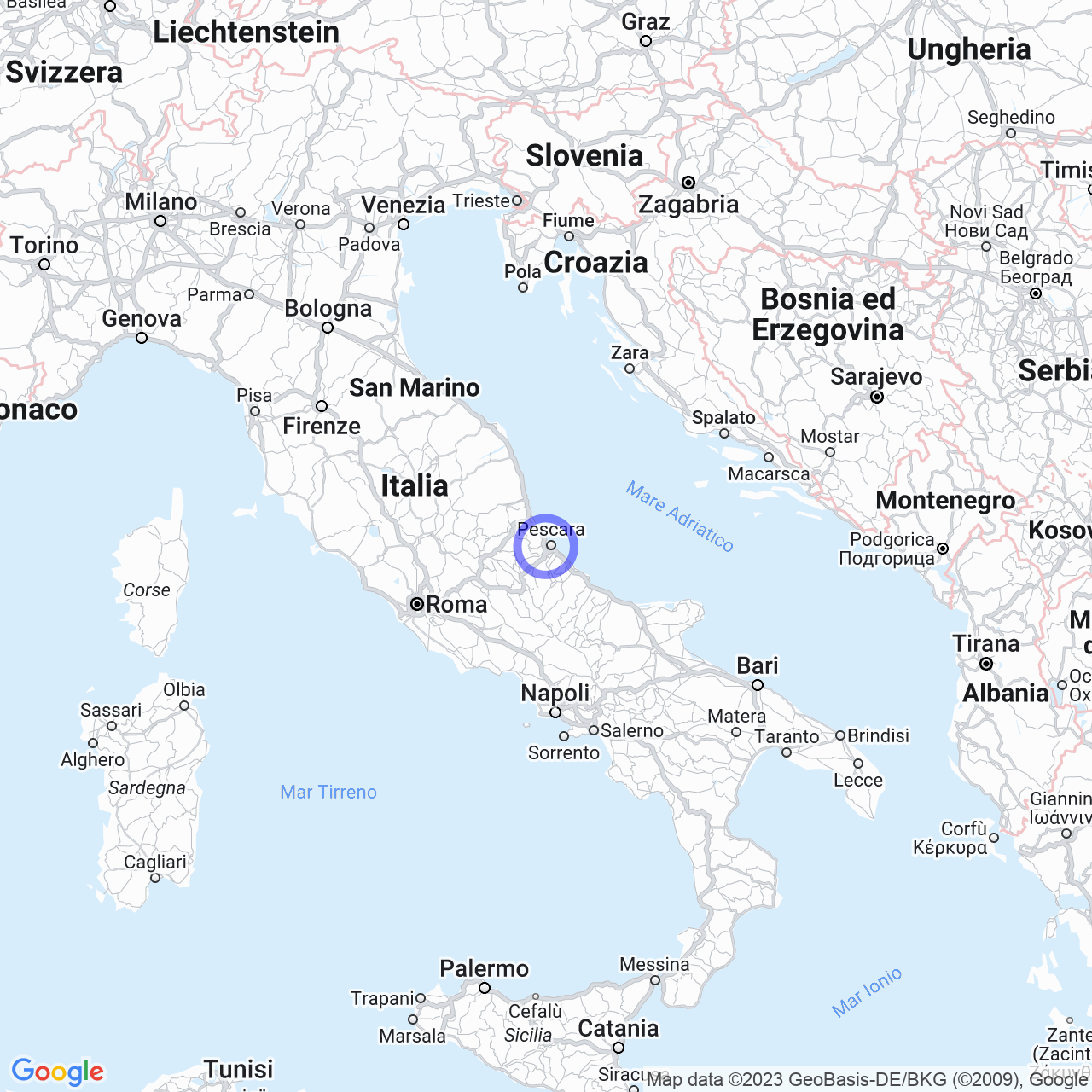Spoltore
Spoltore: Discovering the Abruzzese Municipality
Hello everyone! Today I will talk to you about a municipality in Abruzzo, Spoltore, located in the province of Pescara. With its inhabitants, the town is surrounded by beautiful hilly landscapes and has a lot to offer to those who visit.
Physical Geography

Territory
Spoltore covers an area of about 37 square kilometers and is located about 6 kilometers from the coast. It is delimited by the cities of Montesilvano, Pescara, Cappelle sul Tavo, San Giovanni Teatino, Cepagatti, Moscufo, and Pianella. The historical center is situated on a hill at about 185 meters above sea level, while the hamlets of Villa Raspa and Santa Teresa are located in the plain of Val Pescara.
Climate
Spoltore has a Mediterranean climate, with hot and humid summers and moderately rainy winters. In January, the coldest month, temperatures rarely drop below freezing, while in July, the hottest month, they can exceed thirty degrees Celsius. Rainfall is concentrated in autumn and spring and amounts to about 700 mm of rain per year. The territory is sheltered from western winds thanks to the massive Maiella and Gran Sasso Apennines, but is exposed to garbino winds from southwest and north-eastern Siberian winds.
Origins of the Name
The name Spoltore derives from the Latin word "spulturii," which means tomb. However, there are also some variations of the name such as "Ispoltore" or "Speltare, Spelturi and Spelturo." The presence of a massive Longobard occupation of previous Roman villas on the city's territory, already attested by the Chronicon Casauriense, suggests that the toponym "spelt" derives from the cultivation of farro and Triticum spelta.
History
Spoltore has an ancient history dating back to pre-Roman times. It was occupied by the Romans and the Longobards, and subsequently became part of the Kingdom of the Two Sicilies. During the fascist period, the city was affected by the construction of public works, including the construction of an aqueduct. In 1944, during World War II, the town was the target of continuous bombing.
Monuments and Places of Interest
Despite the passage of time and historical difficulties, Spoltore has largely maintained its medieval architecture. The historic center has been repeatedly referred to as one of the most beautiful in Abruzzo, with its narrow alleys and ancient buildings. The church of San Panfilo, built in Baroque style in the 18th century, is one of the city's most important monuments, along with the Clock Tower, a symbol of Spoltore.
Economy
The economy of Spoltore is mainly based on agriculture, in particular the production of Montepulciano d'Abruzzo wine, called "Montupetra" in dialect. The territory of Spoltore is also famous for the production of extra virgin olive oil and cheeses. In the city, there are also some companies that deal with iron processing and artistic glassware.
Events
Numerous events take place in Spoltore throughout the year. Among these, the "Sagra del Vino Montepulciano d'Abruzzo" is the most important: it takes place every year in September and offers the opportunity to taste the local wine. In addition, every year in June, the "Spoltore in Fiore" event takes place, during which the streets of the historic center are decorated with flowers and plants.
What to Eat
Spoltore offers a wide variety of typical dishes of Abruzzese cuisine. Among these, the chickpea soup is a rustic but tasty dish that has its origins in the peasant tradition of Abruzzo. In addition, the "capretto alla scottadito" is a typical dish of the area, as well as the typical grilled "arrosticini". Finally, the Pecorino cheese of Spoltore, with its intense and characteristic flavor, is ideal for lovers of aged cheeses.
Conclusions
In conclusion, Spoltore is an Abruzzese municipality that has a lot to offer to its visitors, including the medieval architecture of the historic center, the production of quality wines and cheeses, events, and typical dishes of local cuisine. A visit to Spoltore is an experience that will remain in the memories of whoever lives it for a long time.
